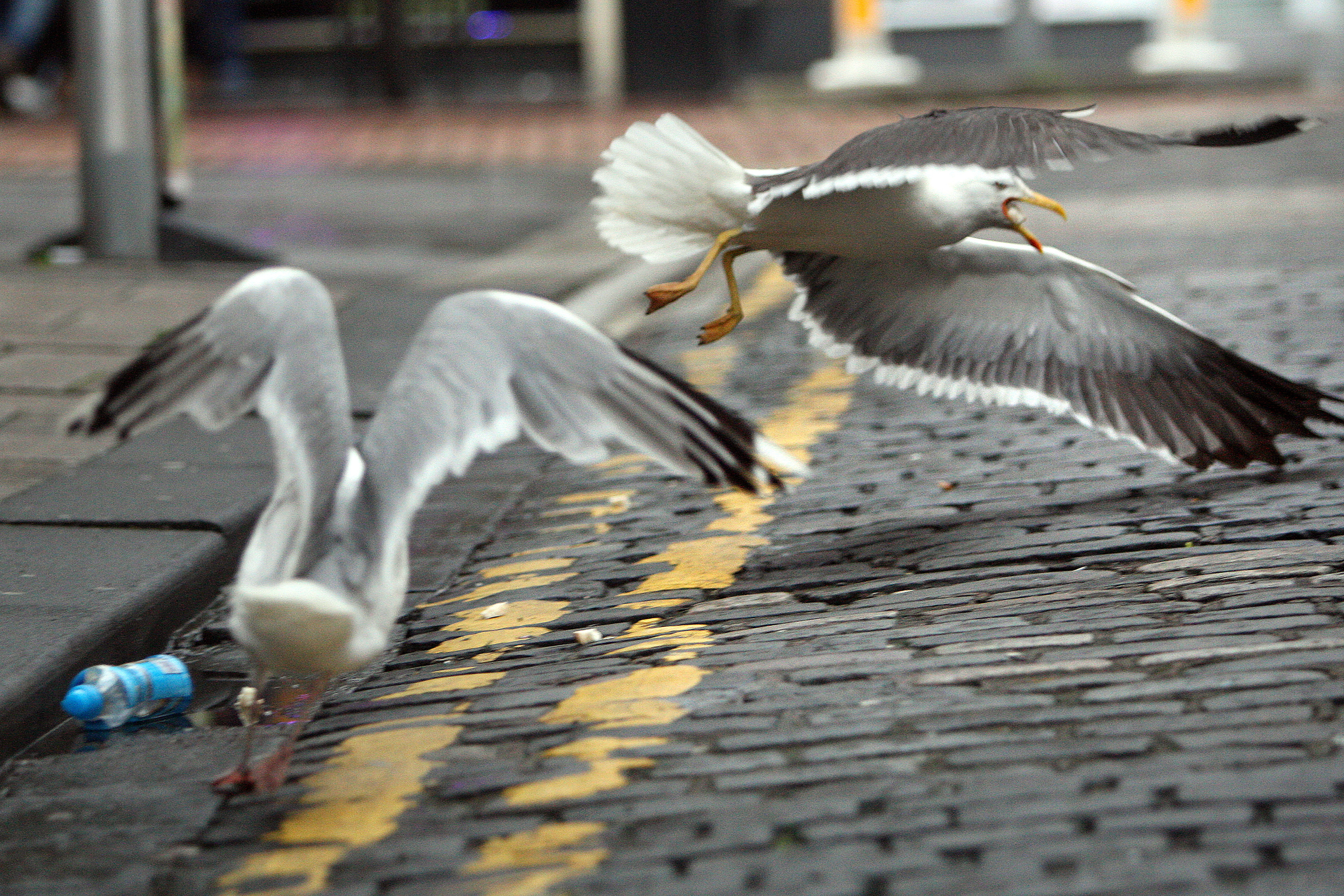A campaign urging the public not to drop food waste could be launched in Fife in a bid to banish aggressive gulls from town centres.
The move, which will also remind staff at food outlets of their responsibilities to prevent littering, is one of three options mooted by Fife Council officers as the battle against greedy gulls continues.
An in-house gull management programme in which pest control officers would charge the public to tackle complaints has been suggested, along with the continuation of a private contract to remove nests and eggs at a cost of £18,000 a year.
Councillors on the environment, protective services and community services committee will be asked to consider all three options and decide which would be the best way to deal with the birds.
Fife Council received around 100 complaints about seagulls last year, along with numerous calls for advice, and said despite the fact it has no statutory responsibility to control the gull population, expectations that the local authority will manage the situation are “disproportionately high”.
The matter appears to be particularly troublesome in Kirkcaldy, where reports are common of birds swooping on shoppers and stealing food from their hands.
Control of nesting birds is the responsibility of the owner of the property on which the nest is situated and it has been shown elsewhere that eggs would have to be removed for four years in a row to make a difference.
In a report to go before the committee on Thursday, safer communities manager Mark McCall recommends a programme of awareness be undertaken.
He said this would ensure commercial premises and the public were aware of their responsibilities to prevent littering and food waste, the primary attraction for seagulls in town centres.
A media campaign would be supported by increased signs warning people not to feed gulls and visits to high schools advising of the impact of littering.
Safer communities officers would also undertake more patrols and use CCTV to prevent littering and issue fixed penalty notices where appropriate.
Mr McCall added: “Given that the local authority has no statutory responsibility to deal with this matter, research presents limited evidence of success in controlling seagull nuisance and the associated costs of delivering a service are extensive it is recommended that option three is progressed.”










